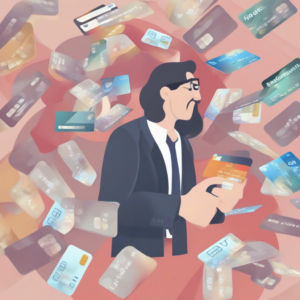Unlocking Financial Freedom: Your Guide to the Lowest Debt Consolidation Rates
Debt consolidation can be a powerful tool for simplifying your finances and potentially lowering your overall interest payments. However, navigating the world of debt consolidation loans and finding the lowest rates requires careful research and understanding. This comprehensive guide will walk you through the process, highlighting key factors influencing interest rates and offering strategies for securing the best possible terms.
Understanding Debt Consolidation Loans
A debt consolidation loan involves taking out a single loan to pay off multiple debts, such as credit cards, medical bills, or personal loans. This simplifies your repayments to a single monthly payment, making budgeting easier and potentially reducing your overall interest burden. The success of debt consolidation hinges on securing a lower interest rate on the new loan than the average interest rates across your existing debts. This is where the focus on finding the “lowest debt consolidation rates” comes into play.
Factors Affecting Debt Consolidation Interest Rates
Several factors significantly impact the interest rate you’ll receive on a debt consolidation loan. Understanding these factors is crucial for maximizing your chances of obtaining a favorable rate.
- Credit Score: Your credit score is the most significant factor influencing your interest rate. A higher credit score (generally above 700) typically translates to lower interest rates. Lenders consider you a lower risk, and thus offer more favorable terms.
- Debt-to-Income Ratio (DTI): Your DTI represents the percentage of your gross monthly income dedicated to debt repayment. A lower DTI indicates a stronger ability to manage debt, making you a less risky borrower and potentially leading to lower rates.
- Loan Amount: The amount you borrow can impact your interest rate. Larger loan amounts might be associated with slightly higher rates due to increased lender risk.
- Loan Term: The length of your loan (e.g., 3 years, 5 years) affects the interest rate. Longer loan terms generally have lower monthly payments but accrue more interest over the life of the loan, often resulting in a higher overall interest rate.
- Type of Loan: Different types of debt consolidation loans (e.g., personal loans, balance transfer credit cards) carry varying interest rates. Personal loans often offer lower rates than credit cards, but eligibility criteria can differ.
- Lender Type: Banks, credit unions, and online lenders all offer debt consolidation loans, but their interest rates can vary. Credit unions often provide more competitive rates for members, while online lenders might offer convenience but potentially higher rates.
- Current Interest Rates: The prevailing interest rate environment significantly influences the rates offered by lenders. During periods of low interest rates, you’re more likely to secure lower rates on debt consolidation loans.
Strategies for Securing the Lowest Debt Consolidation Rates
To maximize your chances of obtaining the lowest possible debt consolidation rate, consider these strategies:
- Improve Your Credit Score: Before applying for a debt consolidation loan, work towards improving your credit score. This involves paying bills on time, keeping credit utilization low, and avoiding new credit applications.
- Shop Around and Compare Rates: Don’t settle for the first offer you receive. Compare rates from multiple lenders – banks, credit unions, and online lenders – to find the best terms. Use online comparison tools to streamline the process.
- Negotiate with Lenders: Once you’ve identified a few potential lenders, don’t hesitate to negotiate for a lower interest rate. Highlight your good credit history and strong financial standing to strengthen your negotiating position.
- Consider a Credit Union: Credit unions often offer lower interest rates and more favorable terms than traditional banks. Membership requirements might apply.
- Explore Balance Transfer Credit Cards: If your debt is primarily on high-interest credit cards, a balance transfer credit card with a 0% introductory APR could be a beneficial option. Be aware of balance transfer fees and the APR after the introductory period ends.
- Focus on a Shorter Loan Term: While longer loan terms offer lower monthly payments, they lead to higher overall interest payments. Consider a shorter loan term to minimize the total interest paid, even if it means higher monthly payments.
- Maintain a Healthy Debt-to-Income Ratio: Keep your debt-to-income ratio as low as possible. This demonstrates financial responsibility and increases your chances of securing a better interest rate.
- Check for Pre-qualification Offers: Many lenders offer pre-qualification tools that allow you to check your potential interest rate without impacting your credit score. This helps you gauge your eligibility and compare offers efficiently.
Understanding the Total Cost of Debt Consolidation
While focusing on the lowest interest rate is crucial, it’s essential to consider the total cost of the debt consolidation loan. This includes not only the interest but also any fees associated with the loan, such as origination fees, application fees, or prepayment penalties. Compare the total cost of different loan options before making a decision.
Potential Downsides of Debt Consolidation
While debt consolidation can be beneficial, it’s crucial to be aware of potential drawbacks:
- Higher Interest Rates for Poor Credit: Individuals with poor credit scores may still face higher interest rates, even with debt consolidation, potentially negating the benefits.
- Lengthening Repayment Period: Consolidating debt into a longer-term loan might result in paying more interest overall, despite lower monthly payments.
- Fees and Charges: Be aware of any associated fees, such as origination fees or prepayment penalties. These fees can impact the overall cost of the loan.
- Potential for Overspending: Debt consolidation can provide a false sense of financial security, potentially leading to increased spending and further debt accumulation.
Alternatives to Debt Consolidation
Debt consolidation isn’t the only solution for managing debt. Depending on your circumstances, alternative strategies might be more appropriate:
- Debt Management Plan (DMP): A DMP involves working with a credit counseling agency to negotiate lower interest rates and monthly payments with creditors.
- Debt Settlement: Debt settlement involves negotiating with creditors to settle debts for a lump-sum payment that’s less than the total owed. This can negatively impact your credit score.
- Bankruptcy: Bankruptcy is a last resort option that can eliminate certain debts but has severe long-term consequences for your credit history.
Conclusion (Omitted as per instructions)





